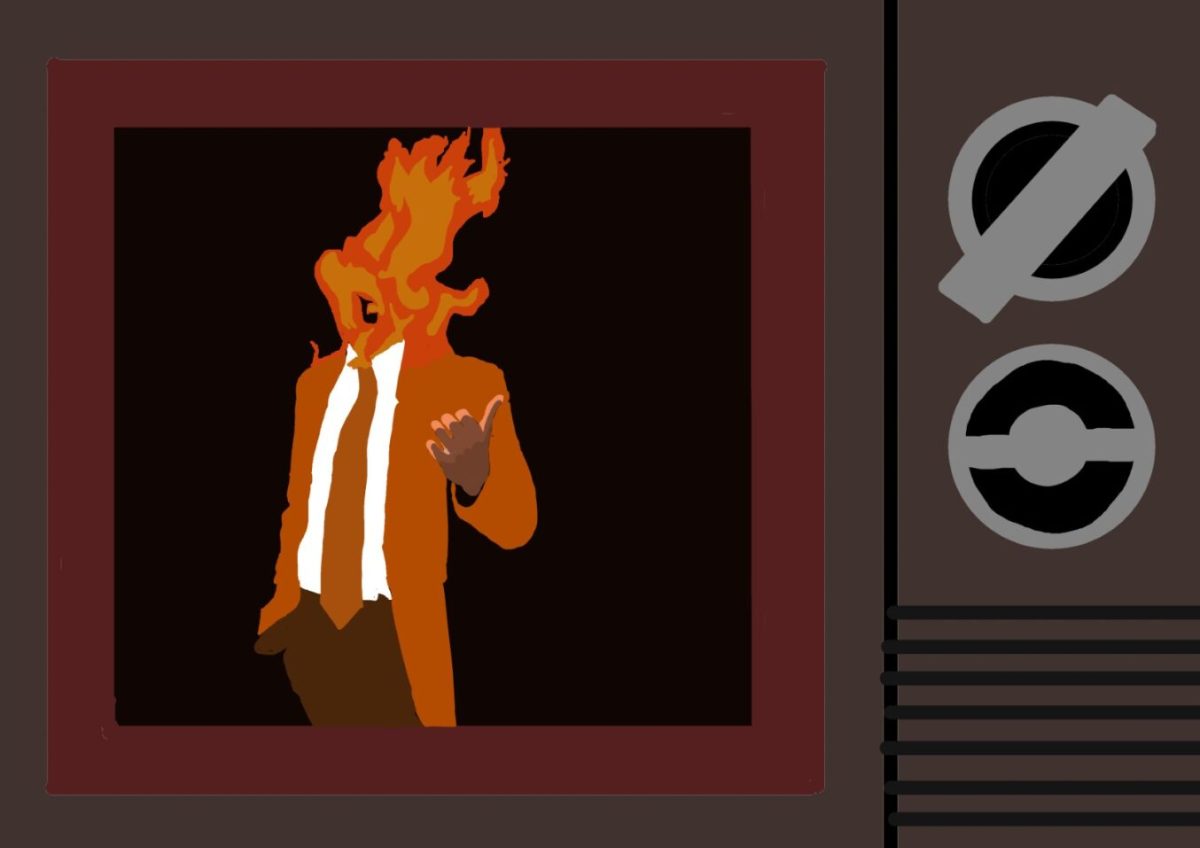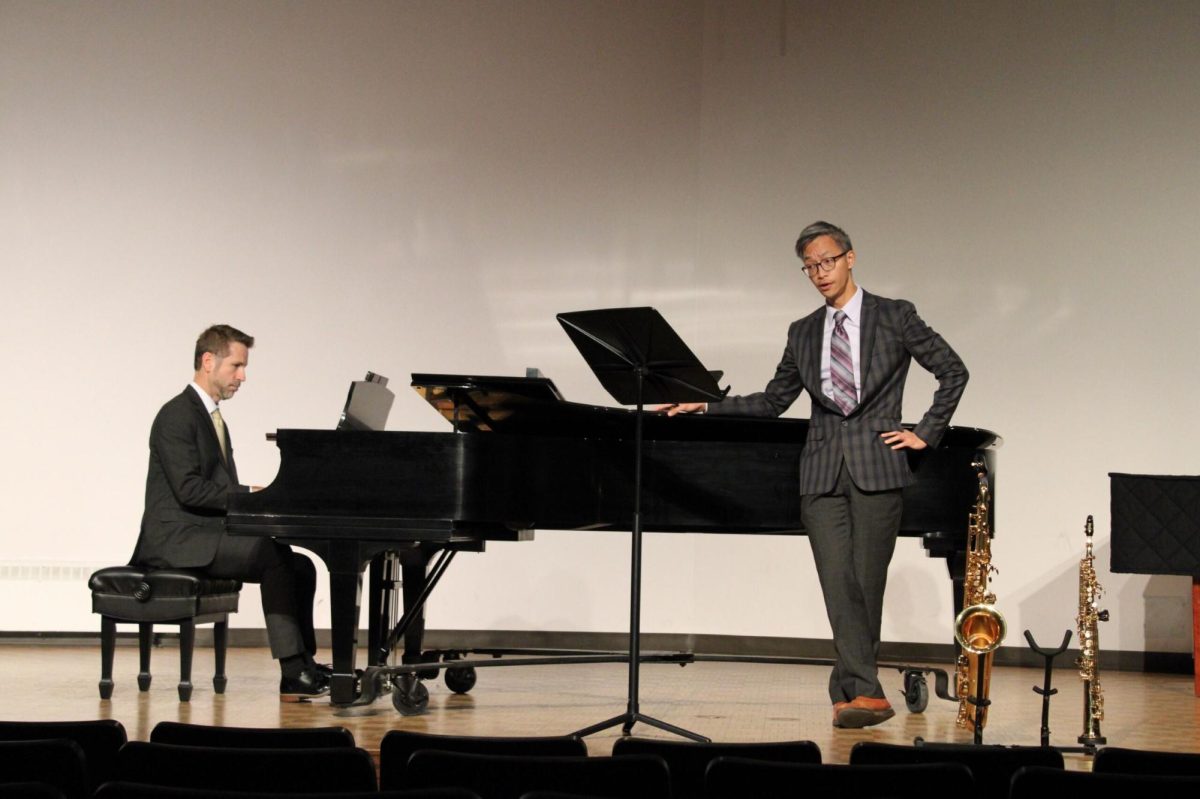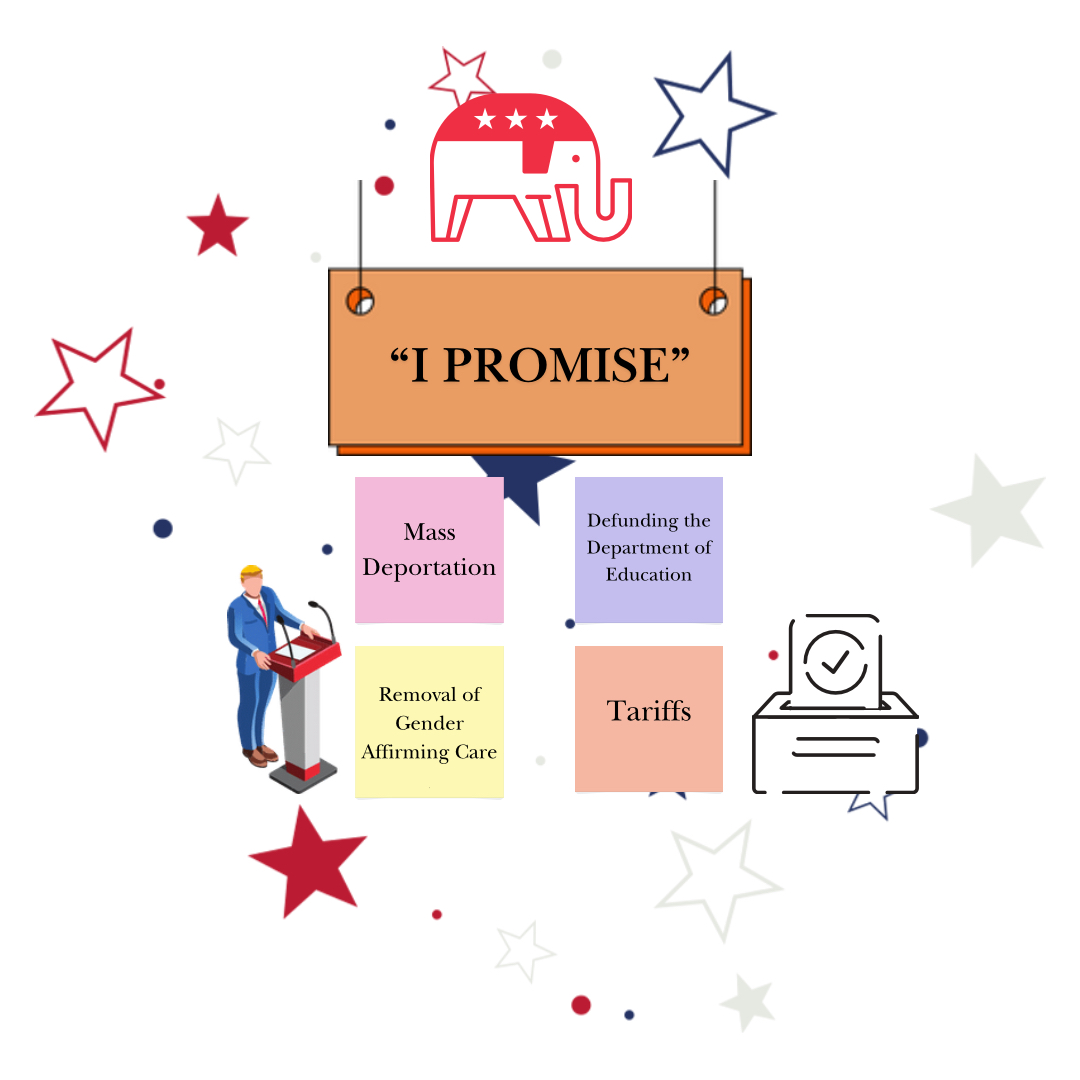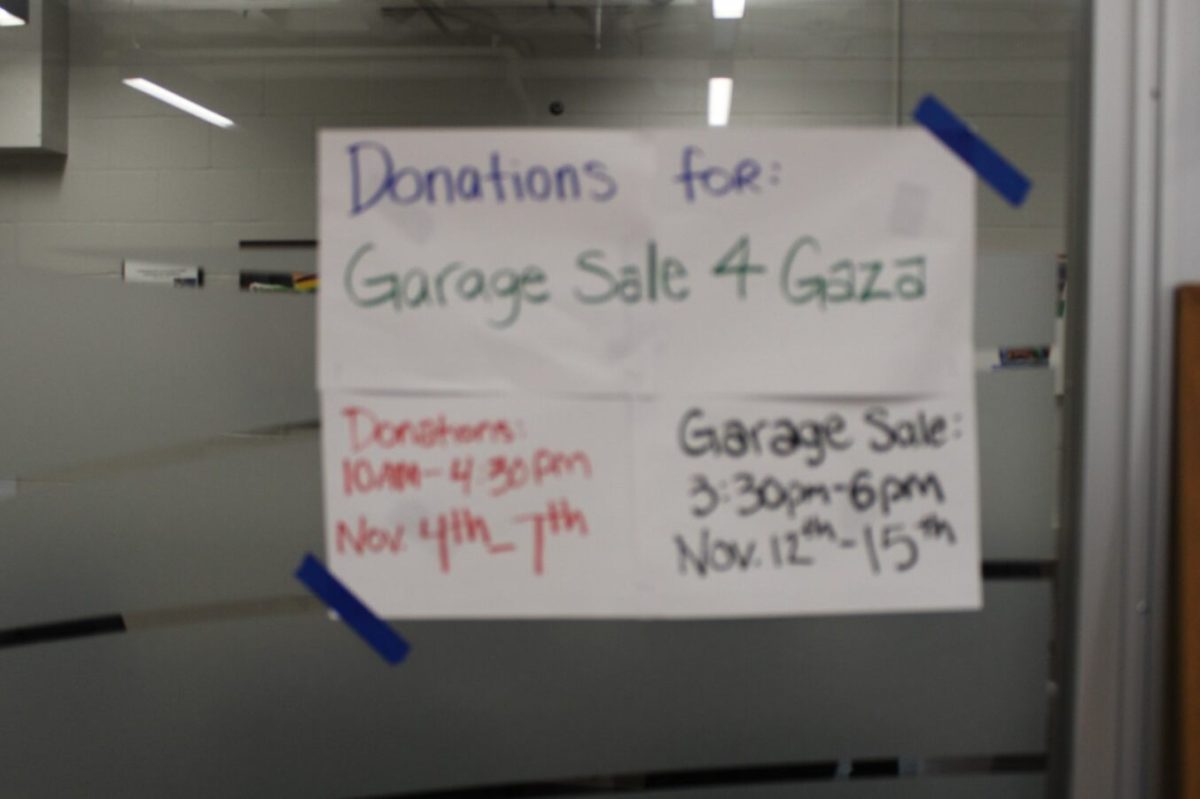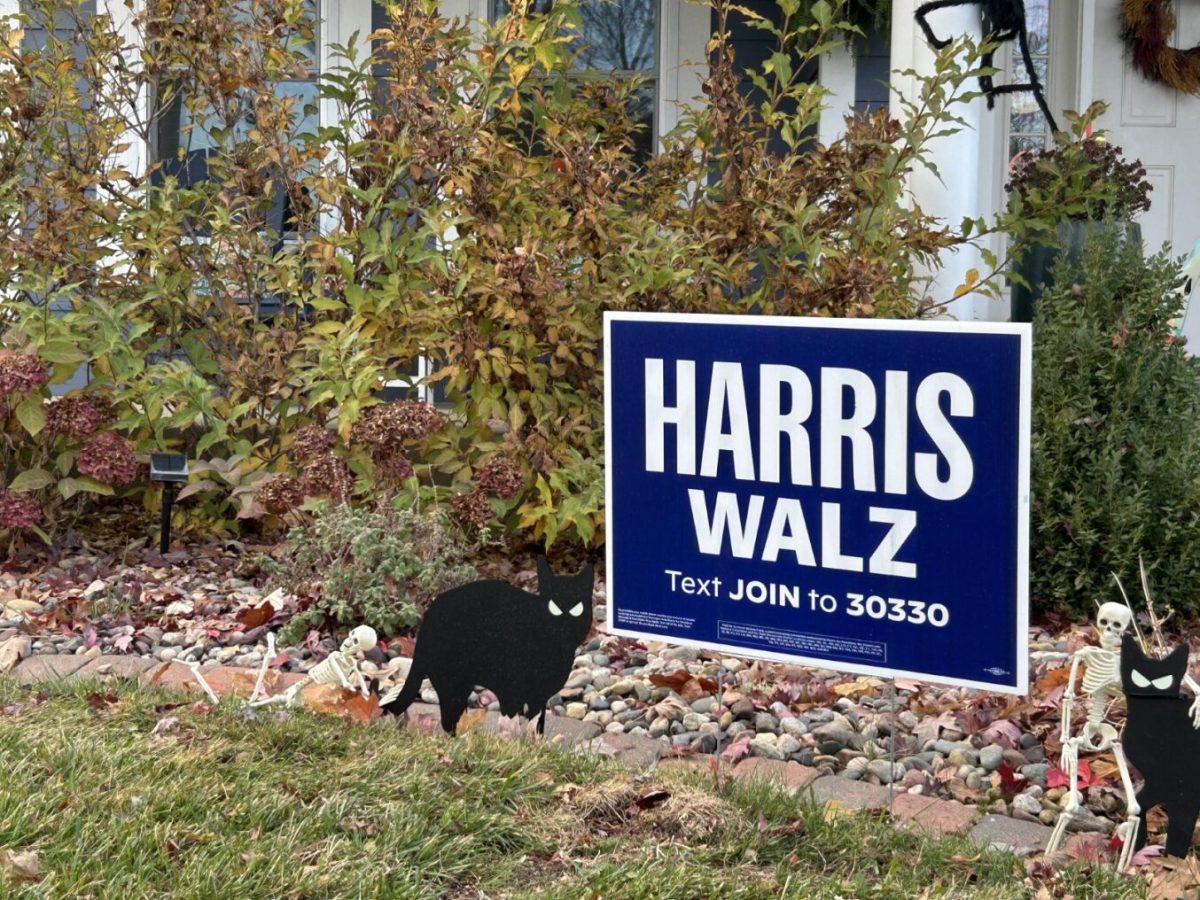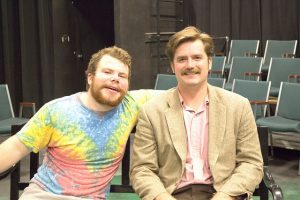
Gina Scott/Winonan
Winona State University senior Ross McNall showcased his production of “The Zoo Story” from Sept. 10 through Sept. 12. Having performed in many productions at Winona State, including “Assassins” and “Peter Pan,” he said this was his biggest and most challenging project yet.
Edward Albee, an award-winning playwright, wrote “The Zoo Story” in 1958. Many of his early works belong to the Theatre of the Absurd category.
The director of McNall’s production, Jim Williams, commented on common themes in Theatre of the Absurd.
“[Theatre of the Absurd] deals with non-communication and isolation, and not being able to connect with society or other individuals,” Williams said.
“The Zoo Story” is about two characters, Jerry and Peter, who meet in New York’s Central Park. While Peter is enjoying his habitual quiet time with a book, Jerry sees him as an opportunity to have an in-depth conversation with another human being. The play follows their conversation in real time, as Jerry talks unremittingly about the events leading up to his trip to the zoo.
Along with producing the show, McNall also starred in it for his Senior Capstone project.
“A capstone project is kind of your final project and your big role as a theatre major,” McNall said.
The Senior Capstone project is not only an opportunity for a major role, but also a chance to show the progression and growth the actor has gone through during their time studying at Winona State.
“Capstone is showing the culmination of [a student’s] work here at Winona State. So this is an opportunity for Ross to show how much he’s grown in the department and also as a person,” Williams said.
With his part as Jerry, McNall had around 90 percent of the dialogue.
“I have a lot of lines; I have a lot of exploration I can do. It can really challenge me,” McNall said.
McNall chose Casey Howe to play the part of Peter. Having worked together before in previous projects and classes, McNall knew Howe could easily take on the role as “the stiff.”
“He fits that character type pretty well,” McNall said.
The two actors started rehearsals in the beginning of August, but were well prepared beforehand.
“They had their lines down before we started, which is unusual,” Williams said.
This left Williams to direct them through blocking and motivations.
“I like to view [Williams] as more of a coach,” McNall said. “He tries to get a lot of bad habits out.”
Rehearsals were almost every day, and the commitment to the show paid off.
“I felt a lot more improvement, as an actor and as an artist working with Jim,” McNall says.
“The Zoo Story” is not your typical story with a clear purpose or moral.
“The script itself is not the easiest script in the world,” Williams said. “This one is all over the place.”
At the initial viewing of the play, audiences might have just seen two men talking, and simply watched it get out of hand.
“So many things are just going to go over the audience’s heads, but I want those thoughts to just linger, I want them to analyze it,” McNall said.
With themes stemming from the Theatre of the Absurd, an audience can explore and create connections to this story and Jerry’s character.
“There’s a lot of subtext, there’s a lot of depth,” McNall said. “There’s a lot of strong themes that you can look at through so many different lenses.”
Because the production was performed in the Dorothy B. Magnus Black Box Theatre, the setting felt much more personal, and the minimal set design worked well. Walking into the theatre to sit down, the audience saw Howe as Peter, sitting on one of the two benches while reading a novel. With birds chirping in the background, the audience could develop a clear understanding of where took play took place before the show had even begun.
Right away, with McNall’s entrance on stage as Jerry, the audience began laughing at his erratic character. While the things he said were random and very strange, the way McNall delivered his lines made his character give the audience something to connect with.
“As an actor, the hardest part was finding motivations for Jerry, and figure out why and what he is doing,” McNall said.
However, when he performed, Jerry showed the need for human connection through his persistence with Peter. Jerry had been living in isolation through the way he spoke at a hundred miles a minute, as if he had been thinking about his stories for a long time.
The play kept its air of mystery with the tragic and shocking ending. Jerry had been an eager and determined character up until the final minutes of the story, when he suddenly grew aggressive towards Peter. They both become territorial, and the audience could see Peter stoop down to Jerry’s level of insanity. Suddenly, Jerry drove himself into a knife Peter was holding, leading McNall to deliver his final lines on the bench. He asked Peter if he could have planned this from the very beginning, causing the audience to wonder the same thing.
“Oh…my…God,” McNall’s final words brought on a wave of melancholic music, as the lights dimmed in the theatre. The audience broke the silence with their applause.
The eerie end of “The Zoo Story” gave the audience the opportunity to think about and analyze the play, just as McNall had hoped.
While this capstone greatly showcased McNall’s dedication, improvement and overall talent, “The Zoo Story” also served as an opportunity for the audience to expand their ways of thinking and understanding people and characters around them.









































